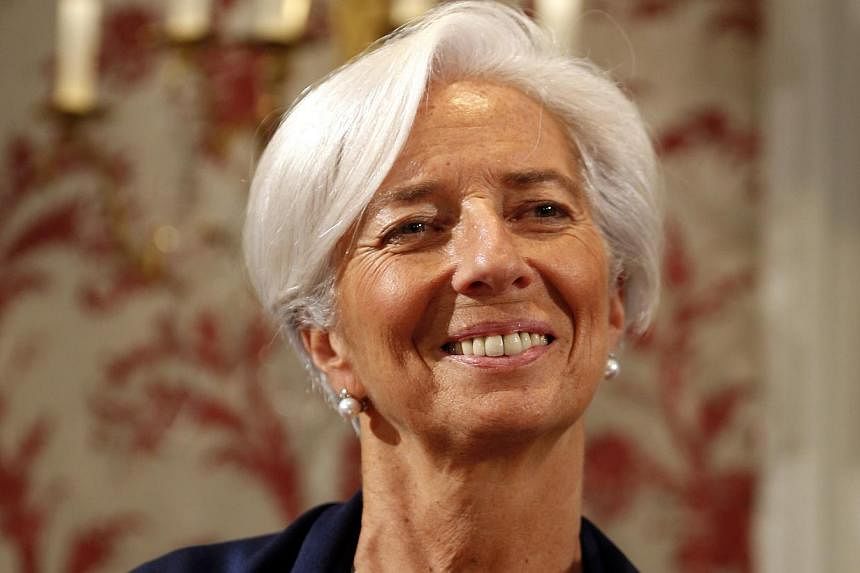PARIS (AFP) - International Monetary Fund chief Christine Lagarde hailed on Friday the Bank of Japan's "very brave" surprise move to step up its support for the country's recovery.
Lagarde praised Japan, where "very brave monetary policy has been displayed, with a very constant and decided drive focused on.... taking Japan out of the rut where it has been for 10 years," in comments at a central bankers conference in Paris.
Last Friday, the Bank of Japan said it would widen its asset-buying plan by as much as 20 trillion yen (S$225 billion), bringing it to an eye-popping 80 trillion yen annually as the outlook for growth and inflation worsened.
Japan will manage only 0.9 per cent growth this year, according to the latest forecasts by the OECD released this week, while inflation slowed to 3 per cent in September as household spending dropped.
Prime Minister Shinzo Abe and the central bank launched last year a series of measures to shake Japan out of a decade of economic lethargy due to deflation, but after early successes the programme has stumbled following an April tax hike.
Lagarde said the stepped up monetary stimulus by the central bank "is in our view perfectly legitimate, at least on a temporary basis if it is combined with the other arrows identified by Prime Minister Abe."
Abe's policy measures, known as the "three arrows", are fiscal stimulus and structural reforms alongside monetary easing by the central bank.
The stepped-up asset purchases by the central bank are aimed at freeing up resources for banks to invest in the economy, but the most immediate effect was to send the yen tumbling against the dollar and euro.
A weak yen is positive for Japanese exports, but there are concerns that a fall in the currency's value will push up costs for firms that imports goods from abroad.

